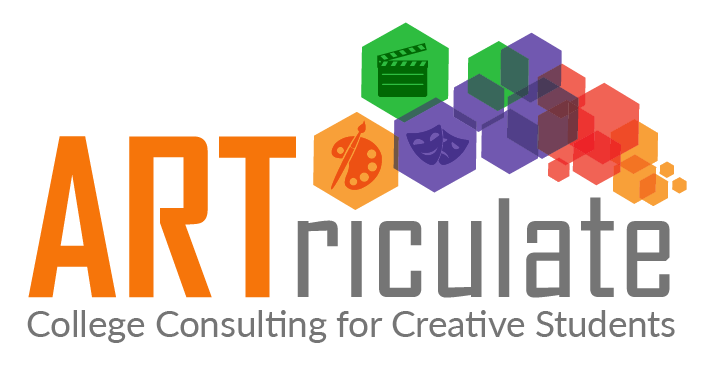A visit to Cornell University
Cornell University, founded in 1865 by Ezra Cornell and Andrew Dickson White, is located in Ithaca, New York. The university was established to provide an inclusive education, embracing both practical and classical studies. Ezra Cornell's vision was encapsulated in his famous words, "I would found an institution where any person can find instruction in any study." As a land-grant university, Cornell also focused on agricultural and mechanical arts alongside traditional liberal arts education. This dual mission laid the foundation for its current status as a leading research institution with a wide array of academic disciplines, including the arts.
Three of Cornell’s colleges (College of Agriculture and Life Sciences, College of Human Ecology, and School of Industrial and Labor Relations) are Land Grant schools within the SUNY system so if you are a New York state resident you will qualify for in-state tuition if you attend one of these schools.
Modern-day Cornell University stands as a prestigious Ivy League institution renowned for its rigorous academics, cutting-edge research, and engaged student body. With roughly 25,000 students from all 50 states and over 120 countries, Cornell offers a wide range of undergraduate, graduate, and professional programs across its 14 colleges and schools. Cornell's athletic teams, known as the Big Red, compete in the NCAA Division I Ivy League, excelling in hockey, lacrosse, and rowing. The university's commitment to sustainability, innovation, and inclusivity continues to attract students passionate about making a global impact, fostering a dynamic and collaborative community that thrives both academically and socially.
One not to miss location on the north campus is the Cornell Dairy Bar which not only offers amazing ice cream made on-site from milk sourced directly from Cornell’s own dairy herd, but also a viewing area of the student run ice cream “factory.” It’s one of the student centers on campus, and once you taste the ice cream you certainly know why. In addition to ice cream, the Dairy Bar provides fresh milk, cheeses crafted at the dairy plant, and other dairy products like yogurt.
Ithaca is a fun college town and its downtown area buzzes with activity, offering a mix of unique shops, eateries, and cafes that serve both students and locals. The town prides itself on promoting local and sustainable food, with farmers' markets and farm-to-table restaurants being particularly popular. As a picturesque suburban college town, Ithaca is also home to Ithaca College. During the academic year, the population increases by approximately 20,000 to 30,000 people, adding to the town's lively atmosphere.
College of Architecture, Art, and Planning (AAP)
The College of Architecture, Art, and Planning (AAP) offers programs in architecture, art, city and regional planning, real estate, and design technology emphasizing creative and critical practices to foster a more sustainable and resilient world.
Program Overview: In 2018 the Department of Art redesigned the BFA curriculum to combine the intensive studio culture of the art department with enhanced access to electives in all areas of the university. Their BFA art programs follow an intensive studio curriculum (64 credits of seminars and studio work) paired with a highly individualized elective curriculum (56 credits including art history and first year writing seminars) - meaning that there is an expectation that artists will be scholars too. Students study drawing, painting, printmaking, sculpture, photography, digital media, video art, installation art, and textiles and fiber art.
Architecture - (B.Arch.) 5-year degree, which is accredited by the National Architectural Accrediting Board (NAAB) and focuses on design, history, theory, and technology.
Art (BFA) individualized study
Urban and Regional Studies - (BS) program that prepares students for careers in urban planning, public policy, and community development, emphasizing sustainability, social justice, and economic development
Facilities: Fabrication shops, galleries, and libraries
Experiential Learning: AAP offers unique opportunities such as the Cornell in Rome program, where students can study architecture, art, and urban planning in Italy, and the AAP NYC program, providing studio and internship experiences in New York City.
Creative Supplement: Portfolio and video interviews required for B.Arch applicants; portfolio required for BFA applicants
Summer Programs: Architecture, Art, Urban Studies
College of Human Ecology
The College of Human Ecology combines design, social sciences, and applied sciences to improve human well-being.
Program Overview:
Design + Environmental Analysis (BS) - Offers programs in design with a focus on the interaction between people and their environments, including fashion design, textiles, and environmental design
Fashion Design & Management (BS) - Studio-based training in fashion design, Merging of fashion and technology, Business perspectives suited to the dynamics of the fashion industry, On-site historical fashion and textile collection
Fiber Science (BS) - Ergonomics and comfort, Fiber-based sensors and detectors, Green composites, Nanotechnology, Performance enhancing fabrics, Sustainable materials and processes
Facilities: Fabrication shops, galleries, and libraries
Experiential Learning: Studio courses, internships, fashion shows and exhibitions, research projects
Creative Supplement: Design supplement is required for Design + Environmental Analysis, Fashion Design, and Fiber Science applications.
Summer Programs: Human Ecology
College of Engineering
The College of Engineering is known for its rigorous engineering and applied sciences programs and its high-impact research in nanotechnology, robotics, sustainable energy, and biomedical engineering. While programs are STEM focused, it does offer a minor in game design through the Department of Computing and Information Science (CIS), specifically within the interdisciplinary programs provided by the Faculty of Computing and Information Science (CIS) and the Department of Information Science. The Game Design Initiative at Cornell (GDIAC) involves courses in computer science, digital arts (computer graphics, 2D and 3D design, development of AR and VR applications, animation), and information science.
If you need help with applying to Cornell schedule an appointment today.
